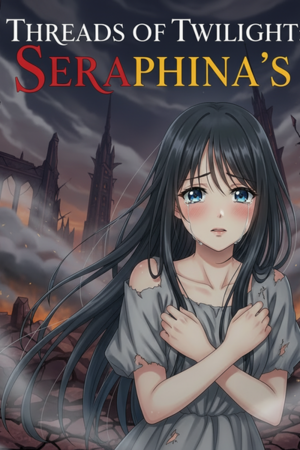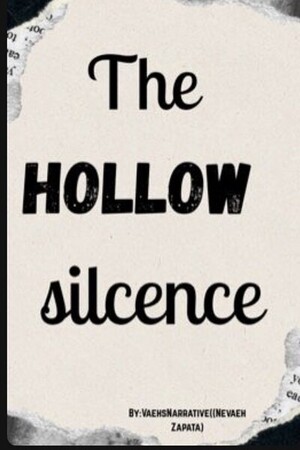The war horn of Zion was a single, pure, golden note that sang of glory, righteousness, and the absolute certainty of its cause. It echoed through the desolate, grey expanse of the Vale of Gehenna, a sound designed by its very nature to inspire unwavering courage in the hearts of the faithful and to strike a holy, existential terror into the souls of the damned. From her vantage point high above the unfolding battlefield, mounted on the back of a great Cherub with the body of a lion, the wings of an eagle, and eyes that held the calm, ancient wisdom of a star, Hoshino Akari felt none of its divine inspiration. To her, it was a death knell, a beautiful, terrible, and heartbreaking sound that signaled the beginning of a slaughter she was powerless to stop.
Beside her, General Gideon sat astride his own formidable winged mount, his scarred face a grim mask of absolute concentration, his single, piercing eye sweeping across the battlefield below with the practiced, analytical gaze of a man who saw the world as a series of tactical problems to be solved with overwhelming force. The army of the Protectors of the Covenant, spread out beneath them, was a breathtaking spectacle of ordered, geometric might. Ten thousand strong, they were a flood of silver armor and brilliant white banners, each emblazoned with the golden sigil of a triumphant lamb. They moved in perfect, disciplined formations, a river of polished steel and unwavering faith that seemed less like an army of men and more like a single, divinely guided organism.
At the sound of the horn, the vanguard, a spearhead of five hundred of the most heavily armored and fanatically devoted knights, known as the Order of the Sepulchre, began their advance. Their charge was a thing of terrible, magnificent beauty, a living spear of divine judgment aimed directly at the heart of the enemy, designed to shatter their lines and their morale in a single, decisive, and glorious blow. Akari watched them go, her stomach a cold, tight knot of dread. Down there, men were about to die for a cause she did not believe in, in the name of a title she did not want, against an army commanded by the only person she had ever loved. The sheer, tragic irony of her situation was a physical weight, threatening to crush her.
She forced her gaze to the other side of the valley. The army of Sheol was a complete, chaotic contrast. It was a black, seething tide of jagged iron, mismatched, scavenged armor, and a thousand horned silhouettes. They did not march in the neat, predictable ranks of Zion, but swarmed and churned like an anthill kicked over, a roiling mass of primal, individual fury. Akari felt a tiny, desperate flicker of hope. They were disorganized, a rabble, a mob. Surely Gideon’s disciplined, holy legions would break them, scatter them like dust in the wind. The battle would be swift, decisive, and the bloodshed, perhaps, could be kept to a minimum.
The silver spear of Zion’s knights crashed into the dark tide. The impact was not the clean, shattering blow she had hoped for, but a dull, sickening, and prolonged roar of splintering lances, the high-pitched screams of dying beasts, and the percussive, wet crunch of steel on bone and chitin. The smell of fresh blood, sharp, hot, and coppery, drifted up to them on the morning wind, a scent so real and visceral it made her want to gag. But the line did not break.
To Akari’s dawning horror, and Gideon’s visible, undisguised shock, the seething mass of The Fallen did not shatter or rout. They held. The brutish, hulking demons who formed the front line, the warriors sworn to the chieftain Baal-Grak, absorbed the glorious charge with a suicidally stubborn, almost geological resolve, their massive bodies and crude iron shields forming a living wall of flesh and metal. The glorious charge of Zion’s pride, which was meant to punch through their center in a single, unstoppable blow, bogged down, its momentum lost in a brutal, grinding, and attritional melee. The beautiful, geometric spearhead was swallowed by the chaotic, black tide.
“They’re holding,” Gideon growled, his voice a low rumble of disbelief, his knuckles white where he gripped the reins of his mount. “By the First Light, how are they holding? Their discipline… it’s… impossible.”
Before he could finish his thought, it happened. It was not a sound or a sight, but a feeling, a pressure, a silent, metaphysical wave of absolute cold and profound, soul-crushing despair that washed over the entire valley. The brilliant sun, which had just begun to climb into the sky, seemed to dim, its warm, golden light growing thin, weak, and distant. The confident, righteous psalms of Zion’s war-priests, who were chanting from the rear lines, faltered, the holy, melodic notes catching in their throats as if they had suddenly forgotten the words. The courage of the soldiers on the front lines, already strained by the brutal, unexpected resistance, curdled into a gnawing, primal fear, a sudden, horrifying certainty of their own mortality. It was a terror so palpable it had an odor, an acrid smell like sweating metal in a slaughterhouse.
Akari gasped, a hand flying to her chest as the cold pierced her very soul, a familiar, terrifying violation. She knew that feeling. It was the Void. But it was not the chaotic, untamed, explosive thing she had felt being ripped from her apartment. This was controlled. Focused. A weaponized hopelessness, an invisible psychic artillery that drained the will to fight, that made faith feel like a foolish, childish dream. And deep within that cold, oppressive aura, she felt a terrible, soul-deep familiarity, an echo of a presence she knew better than her own.
“The King,” Gideon snarled, his eyes scanning the enemy ranks with a new, frantic urgency, his earlier confidence completely gone. “It is him. He is on the field. His power is… absolute.”
Under the cover of this psychic assault, the entire dynamic of the battle shifted with a terrifying, coordinated speed. The demon flanks, which had seemed a disorganized, chaotic mess, now moved with a horrifying, predatory grace. Legions of winged Fallen, the Night-Brood of the chieftainess Lilith, soared into the sky, their dark, leathery forms blotting out the newly weakened sun as they descended like a plague of locusts upon Zion’s exposed and now-panicked archer battalions in the rear. The ground troops surged forward, no longer a rabble but a disciplined, unified, and brutally efficient force, their chaotic movements now revealed as a complex, perfectly executed pincer maneuver, guided by a single, unseen, and masterful will. The Protectors of the Covenant, for the first time in a century of unbroken victories, were being systematically, ruthlessly outmaneuvered. They were losing.
“My lady,” Gideon said, his voice tight with an urgency that bordered on panic, “your light! The soldiers falter! They are losing their will! They need a sign! You must inspire them!”
Akari stared down at the chaos, her mind a frozen, horrified blank. She saw a knight, his pristine white banner now trampled in the black mud, being torn limb from limb by three hulking, ape-like beasts. She saw a line of spearmen break and run in a blind panic, only to be cut down from behind by a wave of smaller, faster, scythe-wielding demons. This wasn't a glorious crusade. It was a slaughterhouse, and her people were the cattle.
Her gaze was drawn to a pocket of the battlefield near the western flank. A small contingent of healers, their white robes a stark, vulnerable target in the sea of mud and blood, was desperately trying to tend to the wounded in a makeshift field hospital. And charging directly toward them, having broken through the thinly held line, was a wave of the largest, most brutish demons she had ever seen. At their head, a creature easily twice her height with a single, massive horn, was Baal-Grak himself.
There was no time to ask for orders. There was no time to think about consequences or strategy. There was only the visceral, sickening sight of the helpless about to be annihilated by a wave of pure, brutish fury.
“Take me down there,” she commanded her Cherub, her voice sharp and clear, cutting through her own fear. The great beast let out a piercing cry and banked, folding its powerful wings for a steep, terrifying dive. The wind roared in her ears, whipping her braided hair across her face. The abstract, map-like view of the battle resolved with sickening speed into a terrifying, ground-level reality of individual screams, the stench of blood and churned earth, and the palpable, electric taste of terror.
She landed in the center of the threatened encampment, the Cherub’s powerful landing sending a shockwave of mud and grass through the air. The wounded healers cried out, their faces a mixture of relief and awestruck worship. The charging Fallen, led by Baal-Grak, skidded to a halt, their bloodlust momentarily replaced by a stunned shock at the sudden, impossible appearance of this radiant, white-gold figure who had seemingly fallen from the heavens.
Baal-Grak, a creature of pure, mindless rage, was the first to recover. He let out a deafening roar of challenge and pointed at her with a crude, black iron axe. “The Light-Bringer! Kill her! Her head for the King!” His warriors, their bloodlust reignited by his command, surged forward in a crashing wave of iron and hate.
Akari acted on pure, unadulterated instinct. She raised the Holy Blade of Longinus. She did not swing it. She did not stab. She simply channeled the raging, chaotic storm of emotion inside her—her desperate, consuming love for Ren, her terror for his fate, her horror at this entire, broken world—and pushed it, all of it, into the blade.
The world went white.
A silent, perfect, and unstoppable wave of pure, radiant energy erupted from the sword. It was not fire; it was not force. It was an absolute, purifying light that erased everything it touched. And with it came a scent that was not of this world—the smell of hot iron after a blacksmith’s quench, and of sterile, clean salt, a scent that promised both preservation and desolation. The wave of energy washed over the charging Fallen. Dozens of the warriors were unmade in an instant, their physical forms dissolving into a fine, sterile ash that scattered on the wind before they could even scream.
The chieftain, Baal-Grak, having been at the forefront of the charge, was caught at the very edge of the blast. He let out a defiant roar and raised his great, black iron axe to shield himself from the impossible light. The holy energy struck the profane weapon, and instead of deflecting, the divine power was absorbed into the metal. The axe glowed white-hot for a single, silent moment before exploding into a shower of molten slag and razor-sharp shrapnel. Baal-Grak was thrown backward as if by a giant's hand, his massive body horribly seared by the flash of divine energy, his shield arm a mangled, smoking ruin. He screamed, a sound that was no longer a battle cry, but a high-pitched, pathetic shriek of pure agony and terror, before he and the few other survivors scrambled back into the darkness, broken and humiliated beasts fleeing an impossible, silent god.
The surviving soldiers of Zion stared, their mouths agape, before a thunderous, exultant cheer erupted from their ranks, a sound that spread across the nearby front lines. “The Light-Bringer! Glory to the Light-Bringer!” They were cheering for her. For their savior. Their saint.
Akari lowered the sword, her arm trembling uncontrollably. She looked at her own hand, at the beautiful, terrible weapon she held, and a wave of profound, soul-shattering nausea washed over her. She had just unmade dozens of living beings. She had just performed a miracle of genocide. She was a monster.
And then, she felt it. The cold, oppressive aura of the Void, which had been a blanket over the entire valley, suddenly contracted. It focused, collapsing in on itself, becoming a single, focused lance of pure, chilling dread aimed directly, personally, at her. The cheers of her soldiers died in their throats. The chaos of the greater battle seemed to fade into a muffled, distant roar. A hush fell over her small, sterilized section of the field.
She lifted her head. Across the field of carnage, standing motionless on a small rise littered with the bodies of the fallen, was a lone, dark rider. The mount was a great warhorse, but one born of nightmare, its form woven from solidified shadow, its mane a trail of dissipating smoke, and its eyes burned like two red, malevolent coals. And upon its back sat the King. He was a figure of absolute darkness in a world of fire and blood, his Void-forged armor seeming to devour the very light around him. He was not fighting. His hands were empty. He was simply watching her. She couldn't see his face behind the blank, horned, and emotionless helmet.
She didn't need to. Her heart, her soul, her entire being screamed his name. It was him. He was the source of the dread. He was the will that guided this unified, terrifying army. He was the monster they called the Demon King. He was Ren.




Please sign in to leave a comment.